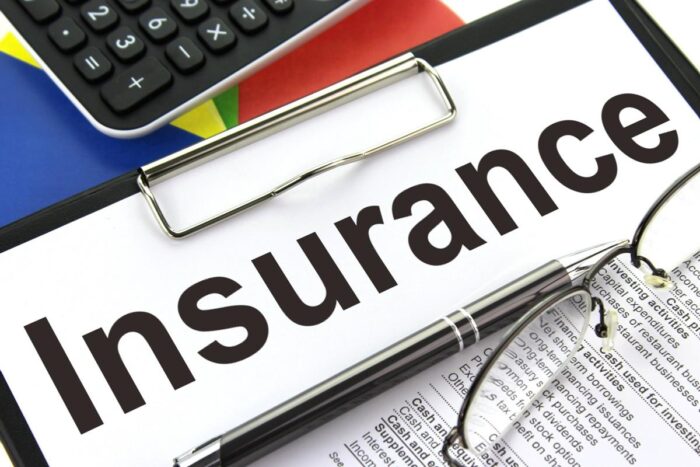
Recovering from a car accident is no easy task. If you’re in a severe accident that wasn’t your fault, you might need ongoing, costly treatment and be unable to work for a while. Then, as if these weren’t stressful enough, you’ll likely be approached by the other driver’s insurance company.
When you first speak to an adjuster — appointed by the insurance firm to find out what happened — you might be surprised that they’re reassuring, kind, and eager to put you at ease and make you feel safe.
They’ll claim to want to help and make sure you get the compensation you’re entitled to. And if you’re mentally adding up how much it’ll cost to get your car repaired and pay your hospital bills, you may be tempted to listen to what they have to offer.
Unfortunately, insurance companies employ this common tactic to get you on side, and their true goal is far more insidious.
How Insurance Companies Operate

Insurance companies are profit-driven businesses. The less money they pay out in accident claims, the more profit they make on their premiums. It’s no surprise, then, that an adjuster will do everything they can to persuade you to accept a settlement. They’ll often assert that accepting their offer is in your best interest and will save you time and stress. The reality is that they want to pay the minimum possible amount to stop you from taking them to court or negotiating a larger settlement — because larger payouts mean a reduced bottom line.
And the shady tactics don’t stop there.
Adjusters often seek car accident victims shortly after their accident when they’re vulnerable to collect a statement they can later use against them. For example, they might try to get you to admit that the accident was your fault so that they can pay you less — or dispute your claim entirely.
In some cases, insurance companies will purposely delay your claim, knowing that you might be in extreme pain and struggling to make ends meet while you’re not able to work. Their goal is to put you in a position where you’re tempted to accept a settlement far below what you’re entitled to.
An insurance company might also persuade you to sign a medical release document so that they can look at your medical history. If your records show that you have an existing condition, the insurer may argue that it compromised your driving ability and contributed to your accident.
What Can You Do about It?

Being approached by an insurance company can be a headache. Fortunately, there are steps you can take to avoid the stress of dealing with an adjuster when they inevitably start asking questions.
Know You Don’t Have to Speak to Them

If the other driver’s insurance company contacts you after your accident, the best thing you can do is not say anything at all. While they may try to pressure you into giving them your side of the story, know that you are not under any obligation to speak to them.
If You Do, Watch What You Say

If you speak to an insurance representative, there’s one thing to remember: everything you say matters. The slightest hesitation or wrong turn of phrase could change the outcome of your claim for the worse.
Be careful about accepting any blame and downplaying your injury. At the start of your claim, the insurance company will set aside a reserve amount based on its initial analysis of the accident and your injuries. If you give a statement about your injury and it later gets worse — or if you fail to disclose the full extent of your injuries — it can be hard to increase this reserve and, as a result, get more compensation.
You should also be careful when talking about your accident online, such as on social media. It’s not uncommon for insurance agencies to trawl your social media accounts for evidence they can use against you. This includes posts indicating that you’re fully recovered because you’re pictured smiling with friends or even a public comment that you’re “feeling okay.” While you might be tempted to share your experience and put on a front to show others you’re not suffering, even when you’re in pain, an insurance company can quickly turn this against you.
Talk to a Personal Injury Attorney

A personal injury attorney is a vital ally in filing your compensation claim after an accident, which extends to dealing with insurance companies on your behalf.
A dedicated car accident lawyer like those at Patino Law Firm in Texas will know how to deal with the sometimes-underhand tactics insurance companies employ to tempt you into accepting a low offer. Not only will they negotiate a fair settlement and take your case to trial if you choose to, but they will also handle communication entirely so that you don’t have to worry about being pressured or saying something they will use against you.
Suppose you’re concerned about an insurance company dragging out your claim, and you need the settlement to pay your medical bills. In that case, a personal injury lawyer will also help you postpone payment until your claim is successful.
If the other driver’s insurance company has already been in touch with you and given you paperwork to sign, you should contact a personal injury attorney as soon as possible. These documents may request you to waive certain rights or agree to a settlement, so you should always speak to a lawyer before signing. If you don’t, you may find it difficult to get the full compensation you deserve. At worst, you may accept an unfair settlement offer and release the other party from all liability, which will prevent you from pursuing further compensation.
Dealing with insurance companies can be tricky, but you can settle your claim on your terms and get the compensation you’re entitled to when you know what to do.














